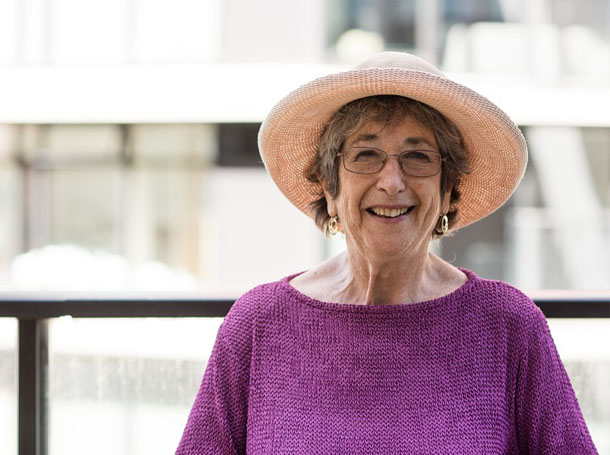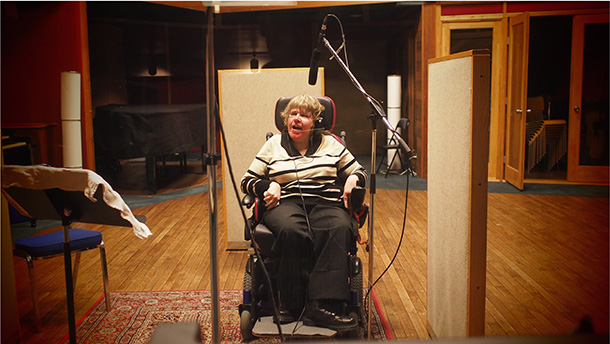Canadian cinema has come a long way since Bonnie Sherr Klein fought for her films to see the light of day, working from the National Film Board's basement in what had previously been the janitor's storeroom.
Earlier this year, the NFB announced that it would achieve full gender parity within the next three years, employing women directors for half of its projects while investing half of production budgets on women-driven initiatives. Telefilm Canada and the Canada Media Fund have since made similar, if softer commitments.
For Klein, who started working at the NFB as a filmmaker in the 1960s, the parity announcement is great news. "I think it's a really important bar to set for all the other film funding agencies that are so lagging," she said.
The renowned director of Not a Love Story: A Film About Pornography (1981) launched her career in an era when getting pregnant meant she had to beg to work part-time. Women's struggle for space in the industry has been hard-won, she said.
That's why it's noteworthy that women from a variety of backgrounds and communities directed all three of the NFB shorts screening at this year's DOXA Documentary Film Festival in Vancouver.
We Regret to Inform You... tells the story of co-director Heidi Janz's struggle to get disability benefits from the Canadian government. Despite her obvious need, the government labelled her too "productive" to qualify. Thérèse Ottawa looks at the power of cultural connection in the Atikamekw Nation in Red Path. And Bonnie Ammaaq chronicles her own family's forced relocation to Iglulik, Nunavut in Nowhere Land.
Women didn't always hold such a place of prominence at the NFB, although hints of progressive gender politics have been a mainstay of the film board as far back as its early years, when it was created largely to promote Canada and inspire civic engagement at home and abroad.
On the front lines
In the 1940s, Jane Marsh was the only female director at the NFB, making short films under the "Canada Carries On" banner in support of the war effort.
In Proudly She Marches, about women helping to strengthen Canada's armed forces, Marsh opens with a male narrator describing women's limited roles in society, which is quickly replaced by a woman's voice describing the skills and dedication that women have to offer, stacking up to any man's.
The NFB committed much more firmly to women's filmmaking in 1974. Coinciding with the UN's International Women's Year in 1975, the film board established Studio D, the world's first production unit devoted exclusively to work by women filmmakers. Studio D produced over 125 films before being shut down in 1996, earning three Oscars in its lifetime.

Klein became one of the NFB's most bankable directors when she made Not a Love Story: A Film About Pornography at Studio D. The controversial film was banned in some provinces and led to fierce debates on censorship and the state of feminism.
Klein has directed many films through the NFB over the last few decades and was named to the Order of Canada in 2013. She is also the mother of prominent Canadians Seth and Naomi Klein.
She remembers the early days of Studio D and being one of only three women filmmakers at the film board's Montreal office. It was an exciting time, as feminism was finding a new voice and Studio D films took part in shaping a national conversation, she said.
"Most of us were involved in some aspect of the women's movement, so we had a community outside of the film board, and we were both inspired by and accountable to that constituency," Klein said.
But as one might expect, it wasn't all rosy. "We always felt like the total underdog, and we always felt underfunded and underappreciated," she said, adding that the news of Studio D's demise in 1996 was a blow to her and others who felt little had changed for women in the industry.
'Nothing about us without us'
In 1987, Klein suffered two back-to-back strokes. After years of rehabilitation, she now relies on crutches and a motorized scooter for mobility, and in 2006 she returned to filmmaking to direct Shameless: The Art of Disability.
In Shameless, Klein comments on the importance of returning to filmmaking as an identity-affirming practice. With a group of her friends who also have different disabilities, she seeks to undo harmful stereotypes and shine a light on the multiplicity of identities in her community.
"I think when people with disabilities make their own films and create their own images -- as when women finally were behind the lens, writing and producing our own stuff -- you're going to see very different stuff," she said. "It's all about 'Nothing about us without us.'"
Klein was pleased to see the DOXA short We Regret to Inform You..., and noted that Heidi Janz wasn't just its subject but was also involved behind the camera. The short film is powerful, pointing to the gross inadequacies of Canada's strategies for supporting individuals with disabilities. "It's a knockout," Klein said.
We Regret to Inform You... played at DOXA on Sunday and won two Alberta Film & Television Awards, including best director for a non-fiction film under 30 minutes, awarded to Janz and Eva Colmers.
It also fits nicely into the history of the NFB's efforts to promote the voices of various groups not always afforded visibility within the industry. As Klein put it, there is an overlap in many of these conversations, in which identities intersect. The key is listening to the voices of the communities represented onscreen themselves, to let them produce the images that the public consumes.
Klein has seen these debates play out over and over again, whether it was the women's movement and Studio D, the civil rights movement, the gay and lesbian movement. "They're all one," she said. None of them can be represented genuinely without their input, even by the most well-intentioned outsiders, she added.
The landscape of film is certainly changing, but, as Klein was sure to point out, "things change... not so fast."
To learn more about Studio D and the NFB, check out the 'Making Movie History' website and app. ![]()
Read more: Gender + Sexuality, Film
















Tyee Commenting Guidelines
Comments that violate guidelines risk being deleted, and violations may result in a temporary or permanent user ban. Maintain the spirit of good conversation to stay in the discussion.
*Please note The Tyee is not a forum for spreading misinformation about COVID-19, denying its existence or minimizing its risk to public health.
Do:
Do not: